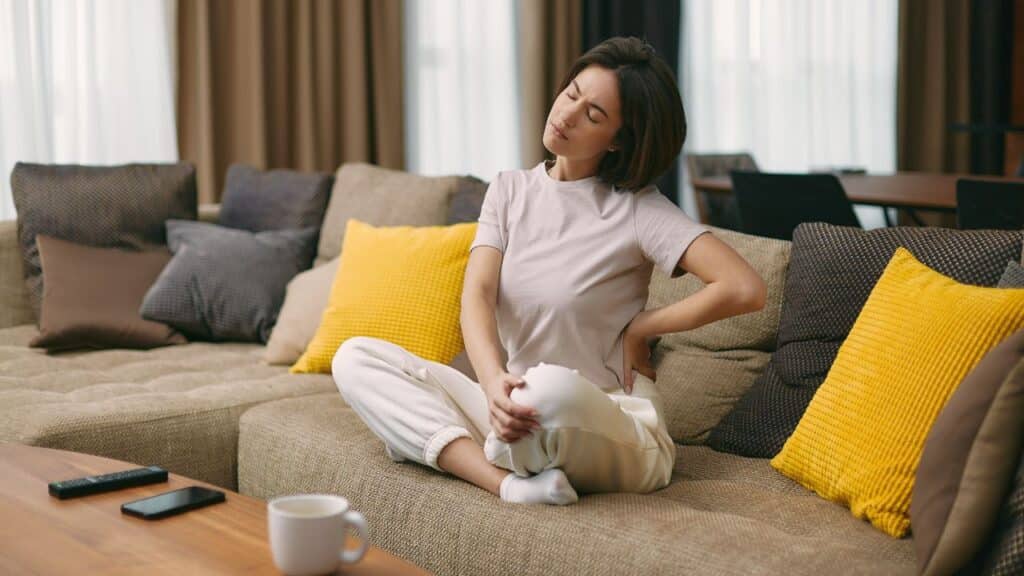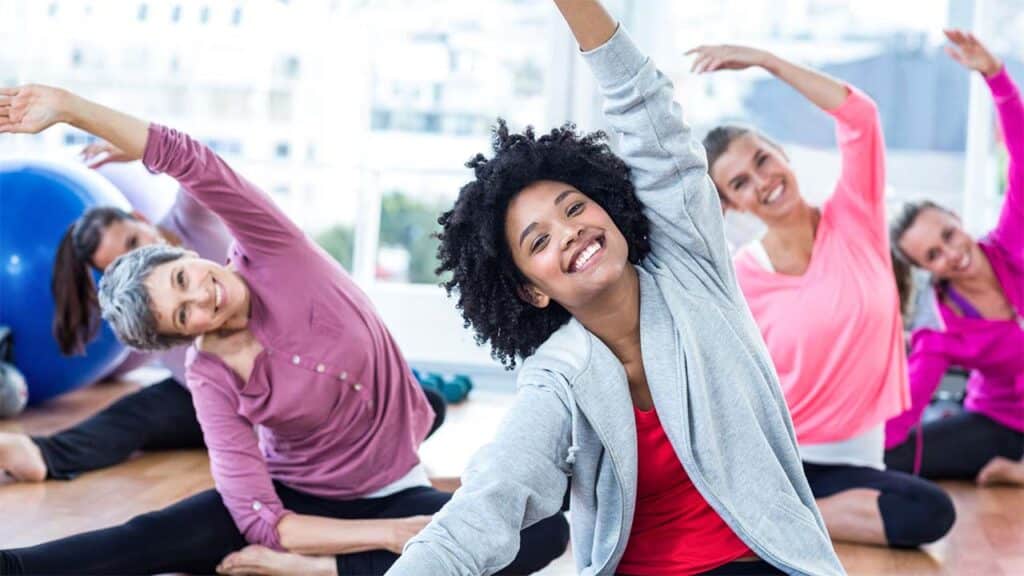Aging is a natural process that everyone experiences, but the way we live can greatly influence how quickly or slowly we age.
Certain lifestyle habits can accelerate the aging process, making us look and feel older than we are.
While some factors, like genetics, are beyond our control, many lifestyle choices can be adjusted to help maintain a youthful appearance and overall health.
In this article, we’ll explore 20 lifestyle choices that accelerate aging, from poor diet and lack of exercise to stress and environmental factors, and provide tips on how to reverse or slow their effects.
1. Poor Diet and Nutrient Deficiencies
A diet high in processed foods, refined sugars, and unhealthy fats can contribute to inflammation, oxidative stress, and cellular damage, all of which accelerate aging.
Nutrient deficiencies, such as a lack of vitamins C, E, and A, can affect skin elasticity, collagen production, and overall health.
- The Impact:
Poor dietary habits can lead to premature wrinkles, dull skin, and a higher risk of chronic diseases like heart disease and diabetes.
- How to Reverse It:
Focus on a balanced diet rich in antioxidants, omega-3 fatty acids, and vitamins from fresh fruits, vegetables, lean proteins, and whole grains.
Pro Tip
Incorporate anti-aging superfoods like berries, nuts, fatty fish, and leafy greens into your diet to promote healthy skin and reduce inflammation.
2. Lack of Sleep
Chronic sleep deprivation affects more than just your mood and energy levels—it can also take a serious toll on your appearance.
Sleep is crucial for the body’s repair processes, including collagen production, which keeps skin firm and youthful.
- The Impact:
Lack of sleep can lead to under-eye bags, wrinkles, dull skin, and increased stress levels, all of which accelerate the aging process.
- How to Reverse It:
Aim for 7-9 hours of quality sleep per night.
Establish a calming bedtime routine and create a sleep-friendly environment to improve your sleep quality.
Pro Tip
Invest in a silk pillowcase to reduce friction on your skin while you sleep, helping to prevent wrinkles and keeping your skin smooth.
3. Chronic Stress
Chronic stress triggers the release of cortisol, a hormone that, when elevated for extended periods, can lead to inflammation, breakdown of collagen, and impaired immune function.
Over time, this accelerates the aging process.
- The Impact:
Stress can cause fine lines, wrinkles, hair loss, and even weight gain around the midsection, which is linked to increased aging and health risks.
- How to Reverse It:
Incorporate stress-reducing techniques such as meditation, yoga, deep breathing, and regular exercise into your daily routine to lower cortisol levels.
Pro Tip
Schedule regular “me time” to unwind, whether it’s through hobbies, reading, or simply relaxing, to help manage stress and support healthy aging.
4. Smoking
Smoking introduces harmful toxins into the body that damage collagen and elastin, the fibers that give your skin its elasticity and firmness.
Smoking also restricts blood flow, depriving skin of oxygen and essential nutrients.
- The Impact:
Smokers often develop deep wrinkles, sagging skin, and a dull, uneven complexion.
Smoking also contributes to premature aging of internal organs.
- How to Reverse It:
Quitting smoking is one of the most effective ways to slow down the aging process.
Your body will begin repairing itself shortly after you quit, and you’ll see improvements in your skin and overall health over time.
Pro Tip
Seek support through smoking cessation programs or apps to help you quit smoking for good and begin reversing the signs of aging.
5. Excessive Sun Exposure
Sun exposure is one of the leading causes of premature aging, also known as photoaging.
UV rays from the sun break down collagen and elastin in the skin, leading to wrinkles, age spots, and a loss of firmness.
- The Impact:
Overexposure to the sun can cause fine lines, wrinkles, sagging skin, hyperpigmentation, and an increased risk of skin cancer.
- How to Reverse It:
Protect your skin by wearing sunscreen with at least SPF 30 daily, even on cloudy days.
Wear protective clothing, sunglasses, and wide-brimmed hats when spending time outdoors.
Pro Tip
Look for sunscreens that contain antioxidants to provide an extra layer of protection against free radicals and environmental stressors that contribute to aging.
6. Sedentary Lifestyle
Lack of physical activity can speed up aging by reducing muscle mass, weakening bones, and increasing the risk of chronic diseases.
Regular exercise helps maintain cardiovascular health, improves circulation, and boosts energy levels.
- The Impact:
A sedentary lifestyle contributes to weight gain, reduced mobility, decreased bone density, and slower metabolism, all of which make you feel and look older.
- How to Reverse It:
Incorporate regular physical activity into your daily routine.
Aim for at least 150 minutes of moderate exercise or 75 minutes of vigorous exercise per week.
Pro Tip
Combine strength training with aerobic exercises for a balanced routine that improves both muscle tone and cardiovascular health.
7. Dehydration
Water is essential for maintaining skin’s elasticity, moisture, and overall health.
Chronic dehydration can cause dry, flaky skin, accentuate fine lines and wrinkles, and lead to dullness.
- The Impact:
Dehydrated skin looks older, less plump, and more prone to irritation and wrinkles.
- How to Reverse It:
Drink at least eight glasses of water per day to keep your skin hydrated and maintain its youthful appearance.
Also, eat water-rich foods like cucumbers, watermelon, and oranges.
Pro Tip
Incorporate hydrating serums and moisturizers containing hyaluronic acid into your skincare routine to lock in moisture and keep your skin looking supple and youthful.
8. Excessive Alcohol Consumption
Alcohol dehydrates the skin and depletes the body of essential nutrients, such as vitamins A and C, which are critical for maintaining healthy, youthful skin.
Excessive alcohol consumption can also cause inflammation and damage to your liver, affecting your body’s detoxification processes.
- The Impact:
Frequent drinking can lead to dull skin, puffiness, broken capillaries, and an uneven complexion, making you look older.
- How to Reverse It:
Reduce alcohol intake and hydrate with water in between drinks to minimize its aging effects.
Focus on a balanced diet and use skincare products that target hydration and repair.
Pro Tip
Stick to moderate alcohol consumption—one drink per day for women and two for men.
Opt for antioxidant-rich drinks like red wine, which has potential anti-aging benefits when consumed in moderation.
9. Poor Skincare Routine
Neglecting your skincare routine or using the wrong products can accelerate the appearance of fine lines, wrinkles, and dullness.
Failing to cleanse, exfoliate, and moisturize regularly allows dirt, pollution, and dead skin cells to build up, leading to clogged pores and premature aging.
- The Impact:
A poor skincare routine leads to dull, uneven skin tone, sagging, and a loss of elasticity.
- How to Reverse It:
Develop a skincare routine that includes gentle cleansing, exfoliating, moisturizing, and using anti-aging ingredients such as retinol, vitamin C, and peptides.
Pro Tip
Always apply products in the correct order: cleanse, tone, apply serum, moisturize, and finish with sunscreen in the morning.
Nighttime skincare should include richer creams and active anti-aging treatments.
10. Over-Exercising
While regular exercise is crucial for health, over-exercising can have the opposite effect.
Excessive, high-intensity exercise can cause the body to produce more free radicals, which contribute to oxidative stress and inflammation.
Over time, this can accelerate the aging process.
- The Impact:
Over-exercising can lead to joint pain, sagging skin, and chronic fatigue, which can make you look and feel older.
- How to Reverse It:
Balance your exercise routine with adequate rest and recovery. I
ncorporate low-impact activities like yoga, Pilates, or swimming to stay active without over-stressing your body.
Pro Tip
Listen to your body’s signals and prioritize recovery days.
Adequate sleep, hydration, and nutrition are essential for maintaining youthful energy and preventing over-exertion.
11. Chronic Sitting
Sitting for long periods without moving can negatively impact circulation, metabolism, and posture.
Prolonged sitting is linked to a higher risk of chronic conditions like heart disease, diabetes, and even cognitive decline.
- The Impact:
Chronic sitting weakens muscles, reduces flexibility, and contributes to weight gain, all of which can make you feel and appear older.
- How to Reverse It:
Take breaks every 30 minutes to stand, stretch, or walk around.
Incorporate more movement into your day, such as walking meetings, standing desks, or using the stairs.
Pro Tip
Invest in ergonomic furniture and make an effort to walk or stand during daily tasks like phone calls or TV watching to reduce the effects of prolonged sitting.
12. Excess Sugar Consumption
High sugar intake leads to a process called glycation, in which sugar molecules attach to proteins like collagen and elastin, causing them to stiffen and break down.
This results in wrinkles, loss of skin elasticity, and sagging.
- The Impact:
Excess sugar contributes to premature wrinkles, age spots, and sagging skin, as well as increased risk for chronic diseases like diabetes and heart disease.
- How to Reverse It: Cut back on sugary foods and drinks, and opt for whole foods like fruits, vegetables, and whole grains. Choose foods that support collagen production, such as berries, nuts, and fish.
Pro Tip
Use natural sweeteners like stevia, monk fruit, or raw honey to satisfy your sweet tooth without causing glycation and skin damage.
13. Constant Use of Technology
Excessive screen time can lead to a condition known as tech neck, where the constant downward angle of the head when looking at phones or computers causes wrinkles and sagging around the neck and jawline.
Blue light from screens also accelerates skin aging by increasing oxidative stress.
- The Impact:
Too much time spent on devices contributes to neck wrinkles, eye strain, and dull, tired-looking skin.
- How to Reverse It:
Limit screen time and take breaks every 20 minutes to look away from your device and stretch your neck.
Consider using blue light-blocking filters or glasses to protect your skin and eyes from damage.
Pro Tip
Incorporate neck-specific exercises and stretches into your routine to strengthen the muscles and improve posture, preventing premature wrinkles.
14. Air Pollution Exposure
Air pollution exposes the skin to harmful particles that can penetrate deep into the layers of the skin, causing inflammation, free radical damage, and premature aging.
Pollutants accelerate the breakdown of collagen, leading to fine lines, wrinkles, and hyperpigmentation.
- The Impact:
Prolonged exposure to polluted environments can result in dull skin, dark spots, and faster development of wrinkles.
- How to Reverse It:
Protect your skin by using skincare products rich in antioxidants, which help neutralize free radicals.
Cleanse your face thoroughly every night to remove dirt and pollutants from your skin.
Pro Tip
Consider investing in an air purifier for your home to reduce indoor pollution levels and improve the overall health of your skin.
15. Yo-Yo Dieting
Yo-yo dieting, or repeatedly losing and gaining weight, can take a toll on your skin and metabolism.
Rapid weight loss can cause the skin to sag, while frequent fluctuations in weight can break down collagen and elastin fibers.
- The Impact:
Yo-yo dieting leads to loose, sagging skin, stretch marks, and a slower metabolism, all of which contribute to the appearance of aging.
- How to Reverse It:
Focus on maintaining a stable, healthy weight through balanced eating habits and regular exercise. Aim for gradual, sustainable weight loss if needed.
Pro Tip
Incorporate strength training into your exercise routine to help build muscle and keep your skin firm as you lose weight.
16. Skipping Meals
Skipping meals can lead to nutrient deficiencies, decreased energy levels, and imbalanced blood sugar.
Over time, this can cause your body to enter a state of stress, leading to increased cortisol levels, which accelerate aging.
- The Impact:
Skipping meals leads to fatigue, skin dullness, and a higher likelihood of overeating unhealthy foods later in the day, contributing to premature aging.
- How to Reverse It:
Eat small, balanced meals throughout the day to maintain stable blood sugar levels, energy, and skin health.
Include protein, healthy fats, and fiber-rich foods to keep you full and nourished.
Pro Tip
Consider meal prepping to ensure you have healthy, balanced meals ready throughout the week, even on busy days.
17. High-Impact Exercise Without Proper Recovery
High-impact exercises, like running or jumping, can place a significant strain on your joints and connective tissues if not balanced with proper recovery.
Over time, this can lead to joint pain, inflammation, and premature wear on your body.
- The Impact:
Engaging in high-impact exercise without adequate recovery can cause premature joint aging, sagging skin, and chronic pain.
- How to Reverse It:
Balance high-impact activities with low-impact exercises such as swimming, cycling, or yoga, and incorporate recovery days into your routine to allow your body to repair.
Pro Tip
Stretch after every workout and use foam rollers or massage tools to promote muscle recovery and flexibility, preventing joint and muscle stiffness.
8. Drinking Sugary Beverages
Sugary beverages like soda, energy drinks, and sweetened coffees are high in empty calories and sugars that accelerate glycation and inflammation, both of which contribute to premature aging.
- The Impact:
Regular consumption of sugary drinks leads to wrinkles, weight gain, and inflammation, which contribute to an aged appearance and increased risk of chronic diseases.
- How to Reverse It:
Swap sugary drinks for water, herbal teas, or beverages infused with fresh fruits for a healthier, anti-aging alternative.
Pro Tip
Add lemon, cucumber, or mint to your water to boost its flavor while keeping your skin hydrated and radiant.
19. Skipping Sunscreen
Sunscreen is the most effective defense against photoaging, or the premature aging caused by sun exposure.
Skipping sunscreen allows UV rays to damage your skin, leading to the breakdown of collagen and the development of fine lines, wrinkles, and dark spots.
- The Impact:
Lack of sunscreen increases the risk of premature aging, wrinkles, sunspots, and even skin cancer.
- How to Reverse It:
Make sunscreen a non-negotiable part of your daily routine, even on cloudy days.
Look for broad-spectrum sunscreens that protect against both UVA and UVB rays.
Pro Tip
Reapply sunscreen every two hours when outdoors, and consider using a mineral sunscreen with zinc oxide or titanium dioxide for extra protection.
20. Neglecting Mental Health
Neglecting your mental health can accelerate the aging process, both physically and emotionally.
Chronic stress, anxiety, and depression increase the production of cortisol, which leads to inflammation, oxidative stress, and other aging factors.
- The Impact:
Poor mental health contributes to chronic fatigue, reduced cognitive function, and premature wrinkles caused by stress and tension.
- How to Reverse It:
Prioritize mental health by practicing self-care, seeking therapy or counseling, and staying connected with loved ones.
Activities like meditation, journaling, or spending time in nature can help reduce stress and promote emotional well-being.
Pro Tip
Schedule regular mental health check-ins with yourself to identify stressors and practice mindfulness to stay grounded and calm.
Final Thoughts
While aging is inevitable, these 20 lifestyle choices can significantly accelerate the process if left unchecked.
By recognizing and adjusting these habits, you can slow the signs of aging and maintain a youthful appearance and energy for longer.
From nourishing your body with a healthy diet and proper skincare to managing stress and protecting yourself from environmental factors, small changes can have a profound impact on how you age.
Take control of your aging process by incorporating healthy habits and avoiding the pitfalls that speed up the clock.
A balanced lifestyle, combined with mindfulness and self-care, can help you age gracefully and enjoy a long, vibrant life.






































